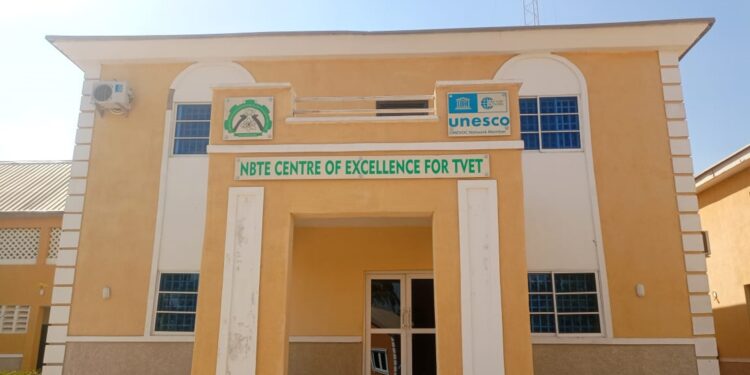In a bold move to reposition Nigeria’s Technical and Vocational Education and Training (TVET) sector, the Federal Government has announced the introduction of a monthly stipend of N45,000 for all students enrolled in technical colleges across the country.
This was disclosed by the Executive Secretary of the National Board for Technical Education (NBTE), Prof. Idris Bugaje, during an interview with the News Agency of Nigeria (NAN) in Abuja, as part of the assessment of President Bola Ahmed Tinubu’s second year in office.
According to Prof. Bugaje, the initiative is aimed at revitalizing the country’s dwindling technical education sector, boosting enrollment, and equipping young Nigerians with practical skills relevant to local and international job markets.
“With this, young people will find it more attractive to come to a technical college, acquire skills qualifications, and get jobs locally and even beyond the borders of Nigeria,” Bugaje stated.
“This marks a new era, a resurrection or rebirth, of TVET in Nigeria.”
Addressing Historical Neglect
Prof. Bugaje highlighted that technical education, which was once a vibrant part of Nigeria’s educational system during the colonial and early post-independence eras, has been neglected over the decades. He noted that while Nigeria currently has about 129 technical colleges, the number pales in comparison to over 15,000 senior secondary schools.
“Since the 1980s, the sector has been on a steady decline. This policy seeks to reverse that trend,” he said.
Comprehensive Support for Students and Industry
Beyond the monthly N45,000 stipend, the Federal Government will also:
- Cover tuition fees for technical college students;
- Pay industry-based supervisors, referred to as “master class” instructors, who mentor students during industrial attachments;
- Fund the cost of skill certification for graduating students.
These interventions are designed not only to reduce the financial burden on students but also to enhance the quality of instruction and skill acquisition.
N120 Billion TVET Support Fund
The Federal Government has also approved a N120 billion grant to support the TVET programme, with disbursement to be handled by the Nigerian Education Loan Fund (NELFUND). Prof. Bugaje emphasized that the N45,000 stipend is a non-repayable grant and not a loan.
“We want to encourage more people to enroll in technical education. This grant is one of several support mechanisms to make technical education a preferred option,” he added.
National Skills Fund in the Works
To ensure the sustainability of the programme, Prof. Bugaje disclosed that the Ministry of Education is working on a legislative bill to establish a National Skills Fund under the proposed Nigerian Skills Qualification Framework (NSQF). This fund will support both public and private TVET institutions across the country.
“The National Skills Fund will be a permanent financial pillar to support TVET institutions nationwide,” he said.
Reformed Curriculum and International Partnerships
As part of its broader reforms, the Tinubu administration has also overhauled the TVET curriculum, now dedicating 80% of learning to practical hands-on training and 20% to theoretical instruction. Earlier this year, Nigeria signed a Memorandum of Understanding (MoU) with the Government of China to further strengthen TVET through equipment upgrades, staff training, and knowledge exchange.
This comprehensive effort by the Federal Government aims to tackle youth unemployment, enhance workforce productivity, and foster economic growth through the revival of the TVET sector.







